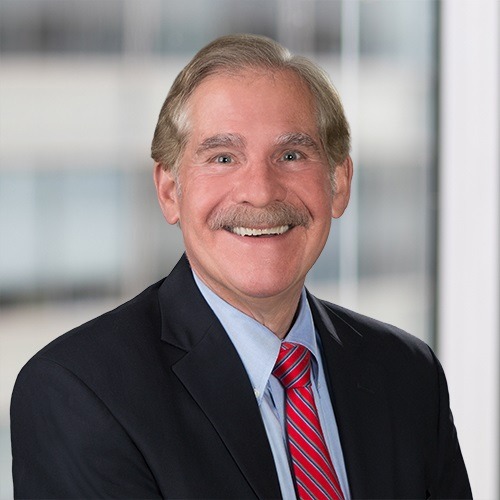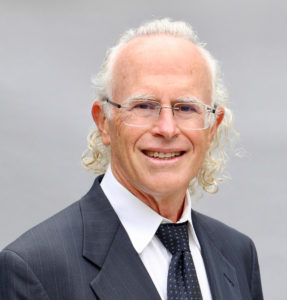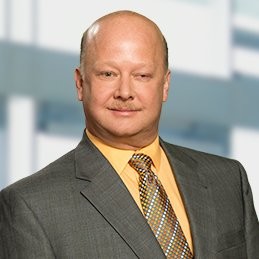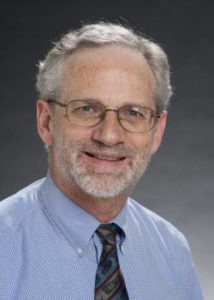View From the Trenches: Interview with Keri Jaeger of Mount Evans Home Health Care & Hospice

Keri Jaeger, MBA, BSN, president and CEO, Mount Evans Home Health Care & Hospice
Mount Evans Home Health Care & Hospice is an award-winning independent, nonprofit health care agency caring for the mountain communities of the Colorado foothills since 1980. It provides home health care, palliative care, hospice care, and emotional support for those who are grieving, caregiving, or adjusting to an illness. In its 40 years of operation, it has never refused to treat any patient who lacked insurance or the means to pay.
Its committed leadership and compassionate caregivers simply do not turn people in need away. Keri Jaeger is president and CEO at Mount Evans. This interview is about her leadership and how she helps accomplish Mount Evans’ mission.
AH: Prior to joining Mount Evans Home Health Care & Hospice (“Mount Evans”), you were the Chief Strategy Officer at the Denver Hospice, the largest hospice in Colorado. What led you to leave your position as Chief Strategy Officer at the Denver Hospice and accept a position at Mount Evans?
KJ: As the Chief Strategy Officer of The Denver Hospice I managed their community outreach, developed health care provider partnerships, negotiated payer contracts, and created a blueprint for growth. While I was with The Denver Hospice my mother resided in Evergreen and elected hospice services. Mount Evans was the obvious choice as they are the leader of high quality hospice services in the foothills of Colorado. So a few years later when Mount Evans called about a management position, I knew it was an opportunity to be part of an incredible organization.
AH: Was it difficult to transition from the largest hospice in the state to a smaller non-profit hospice located in the beautiful foothills of the Rockies?
KJ: Joining Mount Evans has been a wonderful opportunity for me to work with one of the best agencies in Colorado and support the community where I reside. All members of our Mount Evans family are aligned with our mission, to provide experienced and compassionate care during challenging times. Our staff take care of their neighbors and friends. That’s special.
AH: As the President and CEO of Mount Evans, how would you describe your role?
KJ: My job is to care for our staff who in turn provide the best possible hospice, home health, and palliative care to our mountain communities. I want to make sure that our staff is cared for and that they have what they need to take care of people because that is what they do best. Sharing our mission and ensuring communities we serve know we are here for them when they experience a health care need is important.
AH: Part of your professional background includes your degrees as a registered nurse and your MBA. How do you feel those clinical and business backgrounds prepared you for your current role?
KJ: It’s the art of combining clinical knowledge with sound strategies to build programs and develop new ways to care for people. It requires identifying and understanding the needs of the people you are trying to heal and then creating the services to meet that need. I knew that in order to build successful programs that are high-quality and financially sustainable, I would need a strong grasp of the business side of health care along with clinical expertise.
AH: What in particular drove you to focus your talents, skills, and energies to the areas of home health and hospice?
KJ: While I was in nursing school, I worked as a volunteer in an inpatient hospice house that was close to our home. That was my first experience with hospice; I was honored to care for patients and families during their end-of-life journey.
After graduating from nursing school, I specialized in caring for people with traumatic brain and spinal cord injuries. I loved getting to know my patients and their families, focusing on rehabilitation and community reintegration after a life-altering event. Home health care is similar, caring for those experiencing a life-altering event and aiding in their recovery. Those two nursing experiences made the decision to join Mount Evans easy; it was like I was returning to my “professional roots,” caring for people during challenging times.
AH: When the COVID-19 pandemic abruptly upended everyone’s life, how did it affect Mount Evans?
KJ: Since the start of COVID, I’ve seen such strength and love from the staff. They have stepped up to take care of patients consistently with high-quality care and compassion despite all the obstacles and uncertainty. The fear that they may walk into a house with COVID is real, yet they are gearing up and going in. If anything, the crisis has illuminated how important care in the home is now and in the future.
At Mount Evans we consider ourselves a family. We have a team of 60 clinicians and 20 office staff who are inclined to offer hugs and emotional support at every turn. It made the first protocol in our COVID-19 Emergency Plan perhaps the most difficult. We had to practice social distancing. This meant:
- No hugging our patients.
- Closing the doors of our office building.
- Cancelling our in-person support groups and telling our beloved volunteers we needed them to stay safe by staying away.
- Canceling all summer and fall fundraising events at which our communities show their love and support for Mount Evans.
Our family is resilient. Whether it is the mountain way, the Mount Evans way, or a little bit of both, we found new ways to care for our community, including:
- Completely revamping how we deliver care to reduce the possible spread of infection.
- Engaging volunteers in new ways – for example, making masks for our staff, patients, and their family members.
- Offering counseling support through 1-to-1 sessions and groups by zoom.
AH: Was it difficult to have adequate PPE for your staff?
KJ: When the pandemic erupted, constrained supplies and costs posed challenges and these are ongoing. These costs add financial pressure to the agency, but that has not changed our focus on providing quality health care and support to our neighbors and friends who need us to get through one of the most challenging times of their life. In the spring, our community generously stepped up with financial donations to purchase a sufficient stock of PPE for our staff. Local health care providers shared their excess PPE supplies with us. Today, the world is facing a continued coronavirus infection. Safety for our staff and patients they care for is our priority.
AH: What measures have you and your staff undertaken to ensure the safety of all clinical, administrative, and operational personnel as well as your patients? For example, did any of your infection control and prevention procedures change, and if so, how?
KJ: Infection control practices continue to be scrutinized and modified based on several factors, including but not limited to evolving scientific evidence, community spread, and PPE availability. We closely monitor CDC guidelines and community outbreaks and adapt our policies as appropriate. Our medical directors are in close contact and provide recommendations and policy changes as care evolves.
AH: Have any of the nurses or other clinicians at Mount Evans contracted the coronavirus? What about the patients Mount Evans treats in both home care and hospice – has your staff had to care for patients who contracted the coronavirus?
KJ: As a health care provider, we have been fortunate in that we have not had a documented infection among our clinicians. We credit this to strictly adhering to guidance provided by the Centers for Disease Control and Prevention, the Colorado Department of Public Health and Environment, and the local health authorities in the four counties we serve. We regret that some of the long-term care facilities where we partner to provide care have not been as fortunate. Despite their best efforts and vigilance, they have found themselves facing COVID-19.
In response, Mount Evans is doing everything we can to support our caregiving partners in the community. We have designated teams providing care in the respective skilled nursing facilities who are tested every week or three days depending on the facility requirements. These clinicians have demonstrated extraordinary commitment to their patients and resilience.
We operate from the assumption that any patient, colleague, or community member could be an asymptomatic carrier. Integrating safe practices into daily life is vital for all to stay safe and healthy.
AH: Colorado is one of only a handful of states that has enacted an End of Life Options Act. Can you describe what that is and how Mount Evans has dealt with that?
KJ: In 2016, Colorado voters approved Proposition 106, “Access to Medical Aid In Dying,” which amended Colorado statutes to include the Colorado End-of-Life Options Act. This Act allows an eligible terminally-ill individual with a prognosis of six months or less to live to request and self-administer medical aid-in-dying medication in order to voluntarily end his or her life.
Mount Evans reaffirms a basic element of the hospice philosophy that states that because dying is a natural process, hospice seeks to neither hasten, nor postpone natural death. We understand that there may be hospice patients who wish to avail themselves of their legal right to pursue medical aid in dying as their end-of-life option.
Mount Evans will continue to provide quality end-of-life care, symptom management, and services to patients and families with the goal of providing excellent patient care, safe and comfortable dying, and positive life closure. Mount Evans respects patients’ wishes regarding end-of-life options including following Colorado state law allowing for medical aid in dying if that is the patient’s choice.
AH: During these challenging times, how do you motivate your staff?
KJ: Everything in our workplace has changed, however, our clinicians continue delivering care and compassion while our office staff are providing support and kindness to others. What keeps our staff motivated remains the same – sense of mission and meaningful work, teamwork and collaboration, recognition and reward for good work. Engagement is an outcome driven by quality of staff experiences – creating opportunities to engage staff through innovative ways, increased communication, and transparency is vital.
AH: Can you tell our readers something about the kind of people – clinicians and others – who work at Mount Evans?
KJ: When Mount Evans was founded 40 years ago, our motto was “Mountain people helping mountain people.” We have nurtured a culture of family. We are unique in that every person at every level of the organization is approachable. There is no sense of hierarchy. Instead, we have team of highly skilled collaborators who know they can count on each other. They support each other and through their coordinated care and teamwork they make our organization and the care they provide is unmatched.
Quality and compassionate care have always been a focus and that continues today; beginning in 2010, we have been nationally recognized in the top 25% or higher every year for our quality care. Only a select few home health care and hospice agencies across the nation can hold a “quality candle” up to us. We are excellent at what we do, and love doing it!
AH: Mount Evans has a very robust volunteer program. Can you share some thoughts about that?
KJ: We have an extraordinary community of 689 volunteers who support our agency. In fact, the agency was founded by volunteers. We owe our existence and continued success to their generous gifts of time, talent, and heart. This has been a very challenging year for our community volunteers who support our clinical care, bereavement program, events, and office functions.
Since the pandemic, we’ve had to cancel all events and request that our volunteers stay away and stay home to be safe. We are engaging our volunteers in new ways – for example, making masks for our staff, patients, and their family members; delivering care packages to the front door of patients; and visiting our hospice patients via telephone calls.
AH: To what extent does the mountain community of Evergreen, Colorado and surrounding areas support the work and mission of Mount Evans?
KJ: We’ve always taken pride in our independence and our nonprofit mission. It’s what allows us to base every decision we make on providing the best possible care to each patient. However, a nonprofit is only as strong as the community standing behind it. At Mount Evans, we are incredibly blessed to have a family of board members, volunteers, and donors who believe it is important to have an independent nonprofit health care provider in our mountain community that makes sure no one is ever turned away for care.
AH: Can you describe some of the challenges of providing high-quality home care and hospice to people who live in mountain communities, where clinicians often travel over snow-covered and unpaved mountain roads during the winter and when there are heavy snowfalls?
KJ: We provide award-winning hospice, palliative care, home health care, and emotional support and counseling for residents of Gilpin, Clear Creek, Jefferson, and Park Counties, spanning more than 3,500 square miles. It is our honor to travel to these homes. Last year, we drove more than 307,000 miles providing patient care. All-wheel or 4-wheel drive vehicles are a must-have and we provide every member of our care team with ice grippers for their feet.
AH: It’s been said many times that the staff at Mount Evans are more than nurses, therapists, medical directors, and office staff and are more like the “family members” of those they compassionately care for. Can you comment on that?
KJ: The Mount Evans family is made up of professionals from our community. We are taking care of our neighbors and friends; these folks may enter one of our health care programs at intervals throughout their lifetime. Our outreach programs are designed to promote connectedness and well-being among our neighbors, particularly as they face life’s unexpected challenges. We are here to support one another – like family.
AH: What are some of your proudest accomplishments regarding Mount Evans?
KJ: Prior to taking on the role of President and CEO, I served as the Senior Director of Clinical Services for three years. During that time, we were able to improve our care coordination and develop metrics to measure performance. I think Mount Evans has always provided quality care, but prior to these changes, I don’t know that Mount Evans ever assessed what it was doing.
For instance, the organization didn’t look at their re-hospitalization rates and we weren’t tracking how many visits our clinicians were making at end of life in hospice. Those metrics and outcomes are key to high-quality clinical care. I think Mount Evans was providing it, but the organization never evaluated how well they were doing it. Now our clinicians know and I think that’s important because it means they know what they’re doing is making a difference. They know that they are providing better and more coordinated care to a rapidly growing number of mountain residents.
AH: What do you see for the future of Mount Evans?
KJ: Mount Evans touches the lives of over 300 people every day. It takes a lot to accomplish this incredibly meaningful mission. As all nonprofit healthcare agencies, we face challenges of how to do more with less and continue our mission to provide care to all regardless of their ability to pay.
We need to look closely at health care and payment reforms and how they will affect us. We know they are coming, many sooner than we’d like. We need to be proactive in figuring out what models we can adopt that will ensure that we are here for another forty years.
Mount Evans was created by, and for, our community. We will be here providing high quality care to mountain residents when they need us most!
Disclaimer: The author is a member of the Board of Directors of Mount Evans and is both honored and privileged to serve in some small way. The genuinely heartfelt comments of Keri Jaeger above so abundantly illustrate why Mount Evans is such a special organization. This article is dedicated to all of the administrative, operational, and clinical staff who do so much for so many people in need and frequently at the end of their lives.

Alan C. Horowitz, Esq., is a partner at Arnall Golden Gregory LLP, where he focuses his legal practice on regulatory compliance for skilled nursing homes, hospices and home health agencies and manages cases where the Centers for Medicare and Medicaid Services (CMS) has imposed an enforcement action. He is a former assistant regional counsel Office of the General Counsel, U.S. Department of Health and Human Services. As counsel to CMS, he was involved with hundreds of enforcement actions and successfully handled appeals before administrative law judges, the HHS Departmental Appeal Board and in federal court. He also has clinical healthcare experience as a registered respiratory therapist and registered nurse. He can be reached at alan.horowitz@agg.com.
Related Articles
Topics: Alan C. Horowitz , Clinical , Executive Leadership , Featured Articles , Infection control , Leadership , Rehabilitation










